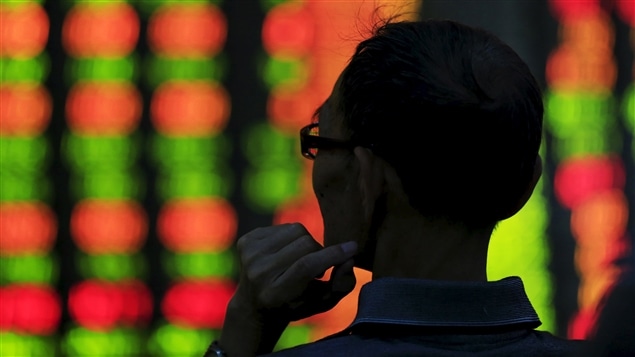China’s economic extremes this week, had investors world-wide taking a closer look at the world’s second-largest economy. Monday August 24th, was a wake-up call for many, In Canada, news of plummeting oil prices, the struggling stock market and a loonie that recently dipped below the 75-cent US level for the first time in more than a decade had Canadians on edge and fearful for their their futures,
But by Friday things began looking up and steadying for the time being. North American and global stock markets surged on Thursday, oil rebounded to above $42 US a barrel and the Canadian dollar recovered to above the 75-cent line.
Professor Ian Lee, of Carleton University’s Sprott School of Business cautions, however, that the drama in China’s economy is not over. He says it is now time to adjust to a slowing Chinese economy, and all that entails for the larger global economy.
Professor Lee, has taught in China since 1997, currently with Carleton University’s Executive MBA program in Shanghai. He says he has tremendous respect for the Chinese people, but the current transition they are experiencing, from a centrally -planned economy to one more market driven, will not be easy. He says no country has done what China is trying now, “there’s no text-book, there’s no case study of any country in the world successfully making that transition from state-owned, not capitalism… and transforming that to both a liberal democracy with free elections and a decentralized market economy.” He reminds us that in the west, it took a thousand years, since the Magna Carta, for democracy to evolve, and 300 years since Adam Smith laid out the frame-work for a market economy, initiating an economic evolution, It will take time for China to complete the transition. Professor Ian Lee says two aspects of Chinese society now present major challenges; the first is the massive debt the country has taken on as it rebuilt its infrastructure. He says it’s estimated that China’s combined debt amounts to about US$25 trillion, making investors nervous. In its current five-year plan, the government intends to build 90 airports. The second challenge, like many countries in Europe, Japan and Canada, is how the ageing of the population will inevitably slow the economy. He advises Canadian investors to be aware, and informed that the the days of seven and eight per cent growth, are very likely in the past.







For reasons beyond our control, and for an undetermined period of time, our comment section is now closed. However, our social networks remain open to your contributions.